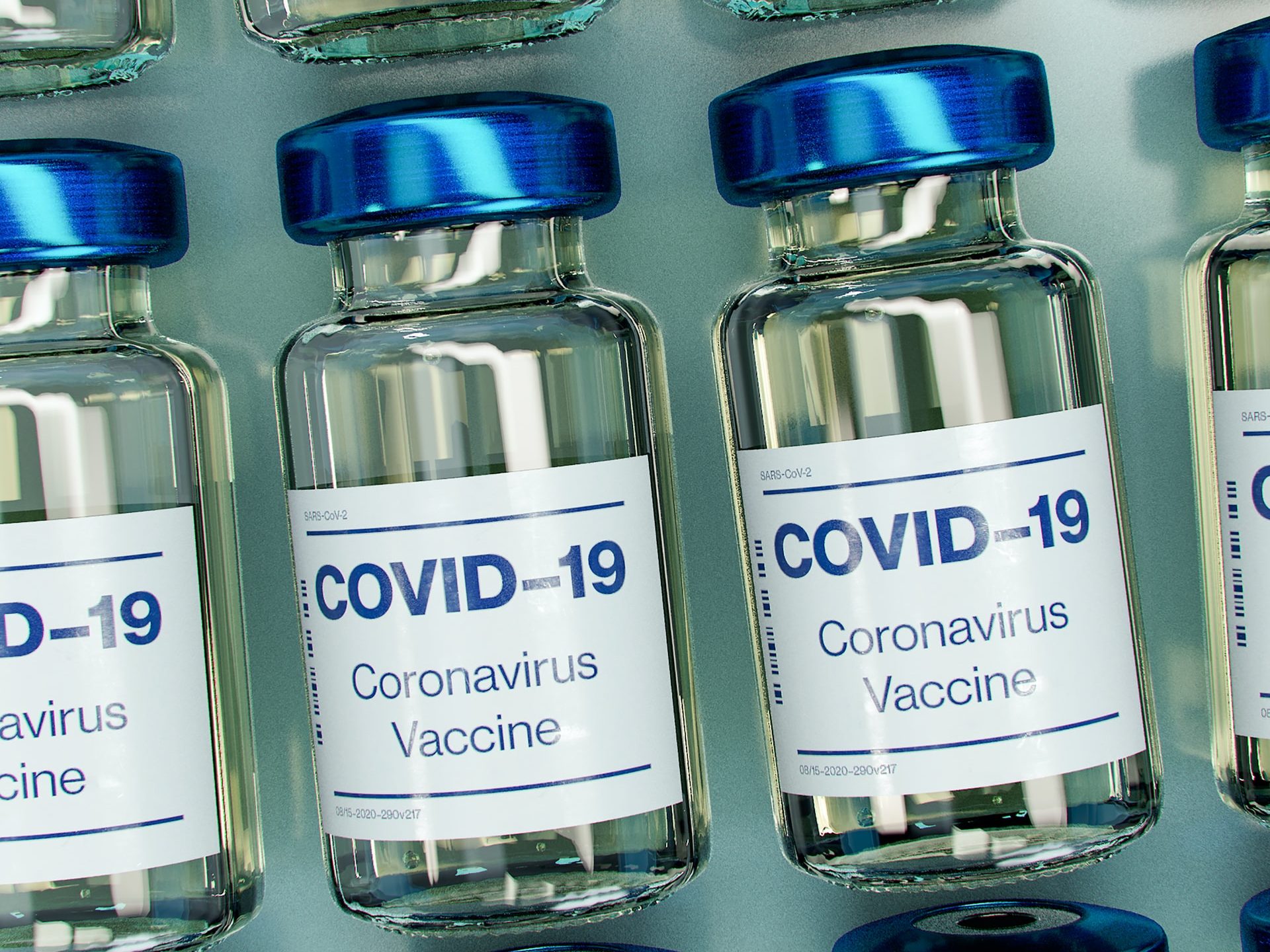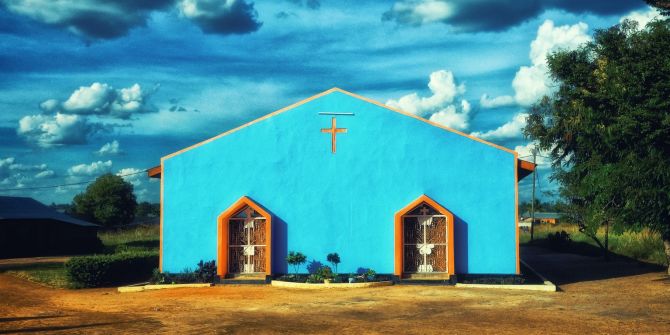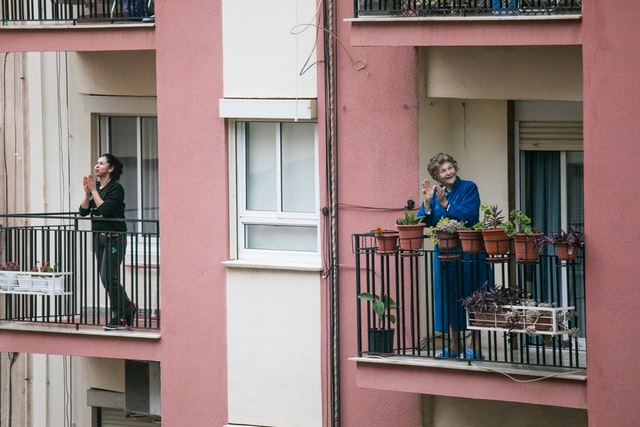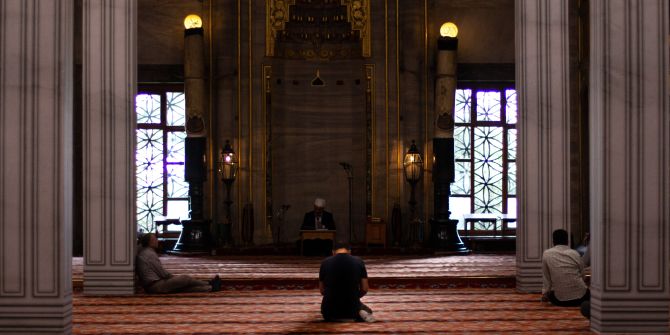From the first jab to the second jab and boosters, vaccinations are now part of public discourse. “Did you get Moderna or Novavax?” is casual conversation. Yet a larger public debate exists around those who have not gotten vaccinated and why they have not done so. The reasons are not black and white, particularly among minorities. In this post, Dr Ben Kasstan explores the histories and messages that contribute to “vaccine questioning” among Haredi Jewish groups in Jerusalem and the UK, drawing on historical abuses of power and modern messaging.
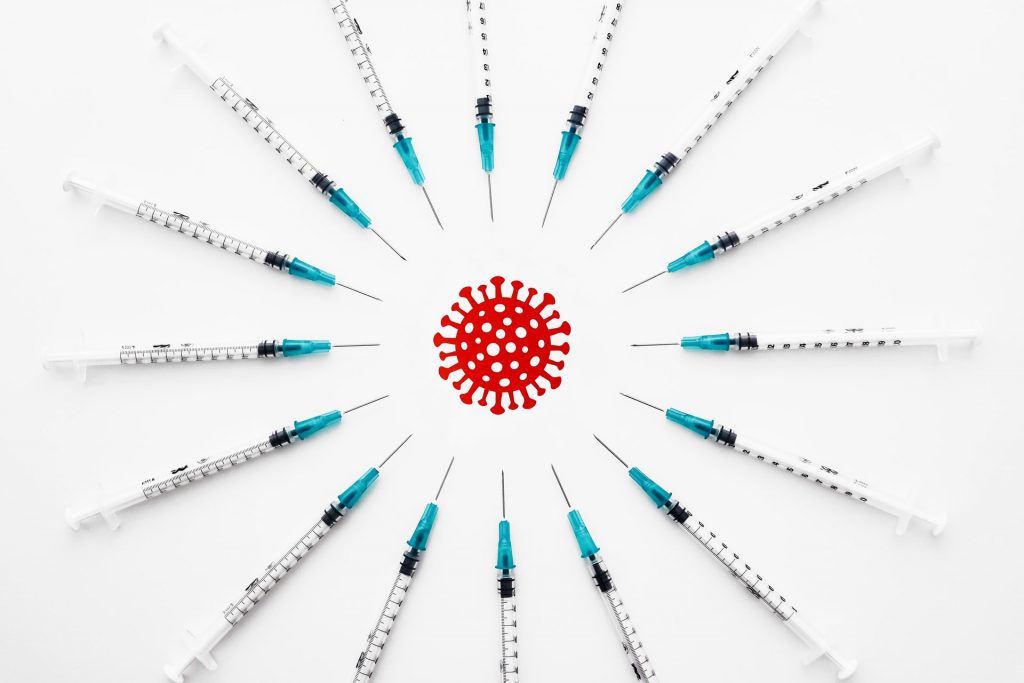
The COVID-19 pandemic followed hard on the heels of the 2018-19 measles epidemics, which revealed a long-running issue of lower-level vaccination coverage among self-protective and marginalized minorities. Initial concern about higher levels of COVID-19 vaccine ‘hesitancy’ focused on Black Americans and people of colour in the UK, linked to data released by the Office for National Statistics. Conversations in the media quickly referenced historical medical racism and abuses of medical ethics as an issue underlying vaccine ‘hesitancy’ among Black populations, both in the US and UK, especially the horrors of the Tuskegee syphilis experiment. In the Summer of 2021, I was asked to review a report on vaccine coverage and targeted interventions to improve uptake, produced by the UK Parliamentary Office of Science & Technology. I was struck by the way the report emphasized Tuskegee as a possible reason for lack of trust, emerging from historical abuses, among Black people in the UK, a claim that was made based on a recently published Comment in the Lancet (cited in the report). I became curious as to whether historical abuses of power and public health ethics, such as Tuskegee, played into the vaccine decisions of people as well as the general discursive presence of history throughout the COVID-19 pandemic.
As part of my long-running research with Haredi Jews – a collective that is diverse yet linked through a commitment to stringency in religious observance – I began to follow the multiple ways in which history was deployed in everyday decisions around childhood vaccinations, among activists promoting non-vaccination, and in public health messaging in the UK and in Jerusalem. Drawing on research just published in Medical Anthropology Quarterly, I highlight here how history has been at play in discussions around vaccination and the need to learn from past lessons and mistakes.
Measles, messages and minorities
Infectious diseases such as measles and polio were once major causes of childhood morbidity and mortality, and are, by and large, a trauma of the past thanks to attempts to achieve universal access to childhood vaccinations. Public health bodies and scholars tend to put forward the view that vaccines are a victim of their own success; as vaccination have removed childhood diseases from the lived realities of parents, they underestimate the value of routine vaccination. From this standpoint, history shapes how people and parents make decisions in the present. Yet, I found that parents and non-vaccination activists promoted opposing readings of history in their decisions.
In 2018/19, localized outbreaks of measles outbreaks were initially linked to unvaccinated Haredi Jews flying between the USA and Israel, but ended up being the largest recorded in a quarter century in the two countries. In Jerusalem, an unvaccinated infant died in Sha’are Tzedek hospital following exposure. In the US, age-old antisemitic claims of Jews being vectors of disease were revived when a public health emergency was declared in Rockland County and New York City. Rather than a ‘minority health’ issue, non-vaccination became a major issue for health protection.
The self-protective nature of Haredi Judaism does make (particularly stringent) families vulnerable to misinformation, especially if their encounters with mainstream media and news are limited. Activists who promote non-vaccination (or what they term ‘vaccine questioning’) have been targeting Haredi Jewish neighbourhoods with misinformation, and those messages then get circulated between New York, Jerusalem, and London. Groups such as PEACH (Parents Advocating for Children’s Health) is an example of how Orthodox and Haredi Jews are circulating non-vaccination messaging within their global networks. Del Bigtree (who is neither Haredi nor Jewish) has become a particular source of authoritative knowledge when it comes to vaccination, and he was brought by American Orthodox and Haredi Jews in Jerusalem to speak at a public event in 2019. Rather than only prompting ‘vaccine questioning,’ as he put it, participants were shown pictures of children in Nazi concentration camps and told ‘we are not the property of our governments.’ This mobilization of the Shoah has, of course, been seen more broadly, most recently with people in the US comparing vaccine passes to the Nazi-era persecution of Jews and the requirement to be identified with ‘Jude’ stars.
The Orthodox and Haredi parents I interviewed had accepted and declined vaccinations, but many made references to historical public health failings and ethical controversies as reasons to be cautious about claims that vaccinations were ‘safe and effective.’ The examples they mobilized included asbestos, and DES (Diethylstilbestrol), which was a pill routinely prescribed to women by physicians in the US between 1938-1971 and has since been linked to increased risk of cancer. For these parents, their concerns were not rooted in religious ‘beliefs’ (as is often assumed when issues of refusal emerge among religious minorities) but rather past failings to protect population health and a request for more transparency in health recommendations.
As conversations about public health and vaccination shifted from measles to COVID-19 in January 2021, I noticed how public posters (pashkevilim) were being plastered in Haredi neighbourhoods and circulated anonymous warnings of vaccine dangers. These pashkevilim drew on history but in different ways, warning residents to not be deceived by Israel’s COVID-19 vaccination programme and comparing it to the process of deception that led Jews to the gas chambers during the Shoah. The Ministry of Health (Misrad HaBriut) sought to circulate their own posters and messages in these neighbourhoods, which I found defaced, illustrating how different grammars meet and compete for authority. Historical abuses were being cast against present challenges and shaping perceptions of public health, though it was one of a range of issues I encountered.
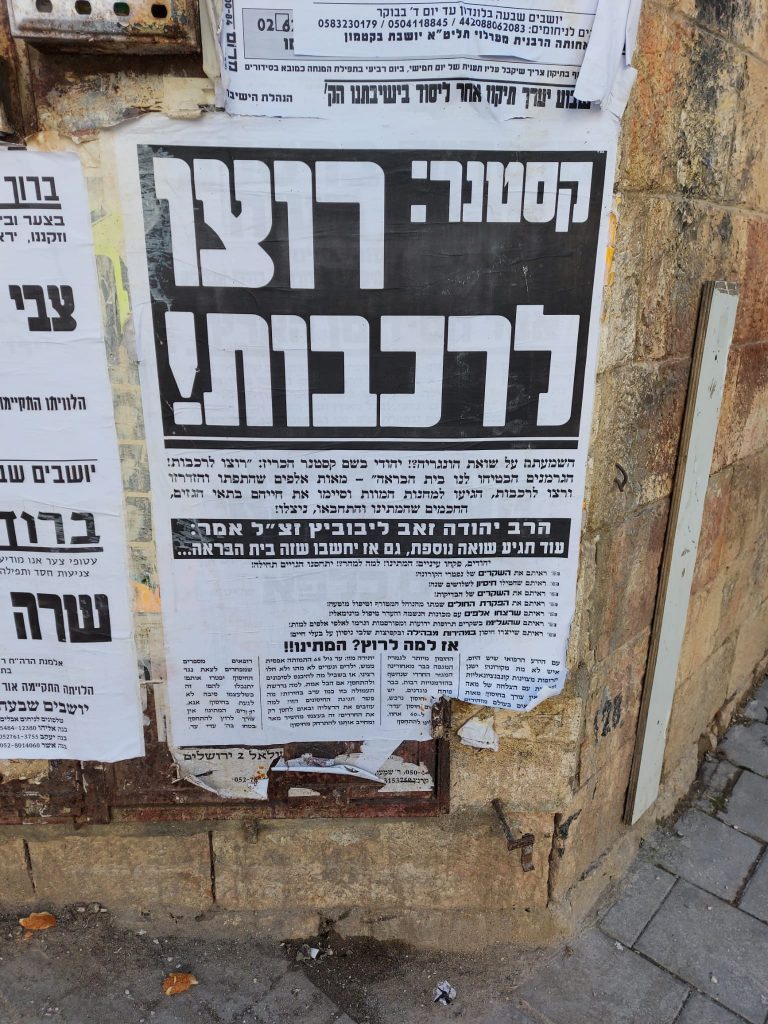
The 2018-19 measles outbreaks were (or should have been) a wake-up call for public health services to implement an effective and proactive pandemic response and vaccination programme. Accessible healthcare services, engagement with science education in schools, and the global circulation of messages and misinformation were common issues between the epidemics of measles and COVID-19. Questions of how Haredi Jews make decisions around vaccinations and whether (if at all) their religious ‘beliefs’ influence vaccine decisions became important to ask. There was another historical thread to the issues surrounding vaccination, notably recent histories of re-structuring and fragmenting public health and vaccination services in England – affecting how lessons can be learnt from.
Learning from the past can inform the present. Many of the issues outlined here – such as public health relations, responses to religious authority, and engagement with the broader grammars and discourses – are applicable to minorities beyond the case at hand. History is a powerful mechanism through which people perceive and respond to vaccination, and history offers a lesson to improve vaccination programmes, especially for groups with historically low-levels of vaccination coverage leading to outbreaks of disease. Understanding the presence of history in perceptions of public health should be taken seriously if we are to avoid the resurgence of childhood diseases that were, but perhaps no longer, a threat of the past.
Note: This piece gives the views of the author, and not the position of the LSE Religion and Global Society blog, nor of the London School of Economics.


